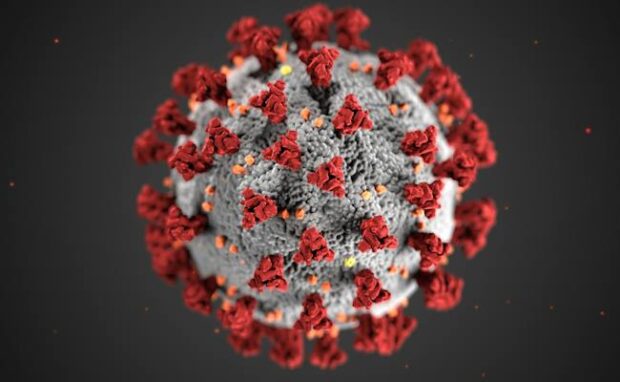Mutant coronavirus kills 100% of ‘humanized mice’
Chinese scientists experimented with a mutant coronavirus strain that eliminates 100% of ‘humanized’ mice. The term “‘humanized’ means the experts engineered the creatures to express a protein found in people. As a result, the researchers fear that it may spread to humans and cause serious symptoms.
The world does not want another COVID pandemic, so many countries have deployed virologists to track down pathogens that may cause a new one. It seems we found a new, unique virus strain from Malaysian pangolins. We must learn more about its risks and ensure it does not spread to many countries.
This article will elaborate on how this mutant coronavirus strain affects mice and share reactions from other experts. Later, I will share new vaccine research tools to make defenses against emerging pathogens.
How did they find this mutant coronavirus?
Chinese scientists 'create' a mutant coronavirus strain that attacks the BRAIN and has a 100% kill rate in mice https://t.co/S5Lz8AYVD3 pic.twitter.com/cPHN9AXF3K
— Daily Mail US (@DailyMail) January 16, 2024
In 2017, the Beijing University of Chemical Technology discovered the coronavirus strain GX/2017 found in Malaysian pangolins. The latter are scaly creatures that harbor numerous coronavirus strains.
The Daily Mail says it is unclear when Chinese researchers continued studying the virus and its latest strain. However, they say the virus may have undergone a “virulence-enhancing mutation” in storage, which made it more lethal.
They called the new mutation GX_P2V and infected eight “humanized” mice. As mentioned, they express a protein found in people to help researchers see how viruses may affect humans.
The researchers also infected eight mice with an inactivated virus and left another eight uninfected as a control group. As a result, all mice with the mutant coronavirus died.
They fell to the infection between seven and eight days after getting infected. The study said symptoms included hairs standing up or piloerection, sluggish movements, hunched posture, and eyes turning white.
They found “significant amounts of viral RNA in the brain, lung, turbinate, eye, and trachea of the GX_P2V infected mice.” Moreover, the viral load “significantly decreased” in the lungs, but the animals’ brains shrunk with “exceptionally high” virus levels.
You may also like: Vibrating molecules destroy 99% of cancer cells
The results suggest that the virus infects the respiratory system and then moves to the brain. “Severe brain infection during the later stages of infection may be the key cause of death in these mice,” the researchers said.
“This is the first report that a SARS-CoV-2-related pangolin coronavirus can cause 100% mortality in hACE2 mice, suggesting a risk for GX_P2V to spill over into humans.”
However, Francois Balloux of the UCL Genetics Institute said on X, “It’s a terrible study, scientifically totally pointless. I can see nothing of vague interest that could be learned from force-infecting a weird breed of humanized mice with a random virus.”
What are the latest ways of fighting viruses?

Besides looking for new virus strains, experts are also developing faster vaccine creation methods. Harvard Medical School and the University of Oxford recently created a new artificial intelligence tool called EVEscape.
It started from EVE, which means “evolutionary model of variant effect.” It deals with gene mutations that cause human diseases. EVE’s core is a generative model that learns to predict how proteins work based on large-scale evolutionary data across species.
This program allowed researchers to differentiate between disease-causing and benign mutations that cause heart rhythm disorders and cancers. However, the COVID-19 virus swept the world as an unpleasant surprise for researchers.
It kept changing its structure, so therapies and vaccines struggled to beat it. “We underestimated the ability of things to mutate when they’re under pressure and have a large population in which to do so,” computational biologist Debora Marks stated.
You may also like: Scientists found a virus attached to another
“Viruses are flexible: it’s almost like they’ve evolved to evolve,” she added. However, Marks and her team saw the pandemic as an opportunity to improve EVE. They rebuilt it into an AI virus tool called EVEscape that predicts viral variants.
They augmented its mutation prediction feature with biological and structural details of specific viruses. “We’re taking biological information about how the immune system works and layering it on our learnings from the broader evolutionary history of the virus,” co-lead author Nicole Thadani.
The experts tried it on COVID-19, and it processed thousands of new SARS-CoV-2 variants produced weekly and identified the most problematic ones. Perhaps it could help inoculate against the new mutant coronavirus, too.
Conclusion
Chinese scientists found a new mutant coronavirus that kills 100% of “humanized” mice. As a result, the researchers warn it may harm humans.
Their latest research “underscores a spillover risk of GX_P2V into humans and provides a unique model for understanding the pathogenic mechanisms of SARS-CoV-2-related viruses.”
Learn more about this latest mutant strain by reading the preprint on bioRxiv. Also, check the latest digital tips and trends at Inquirer Tech.